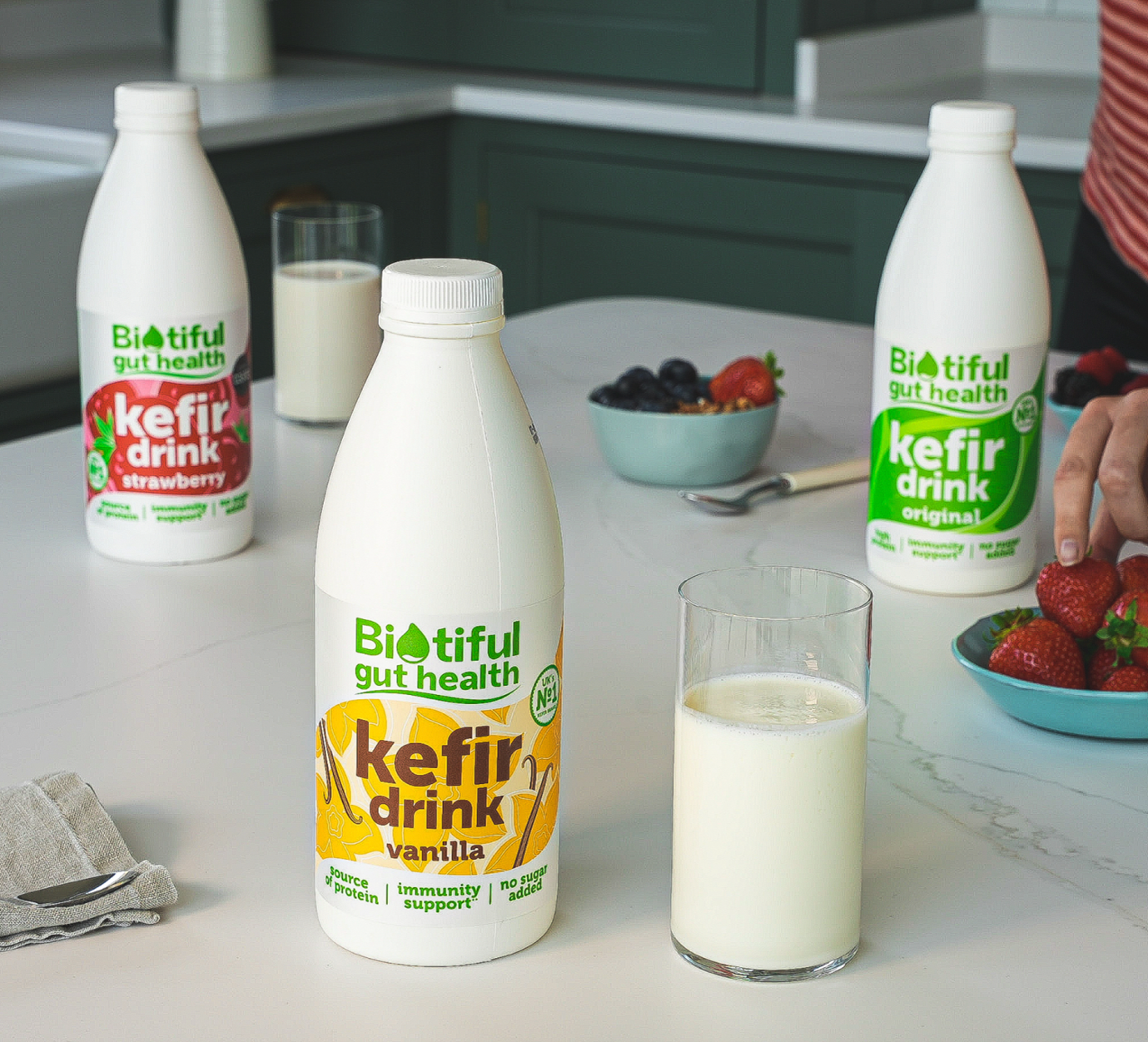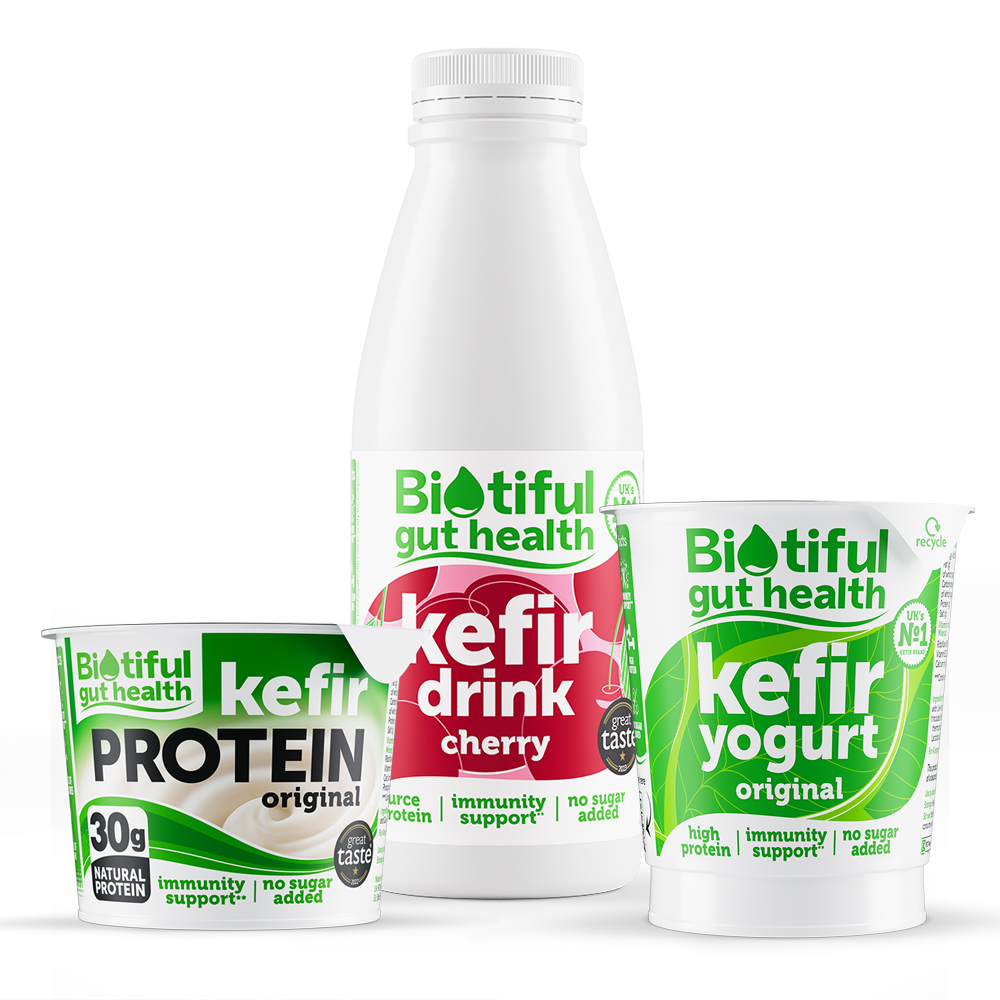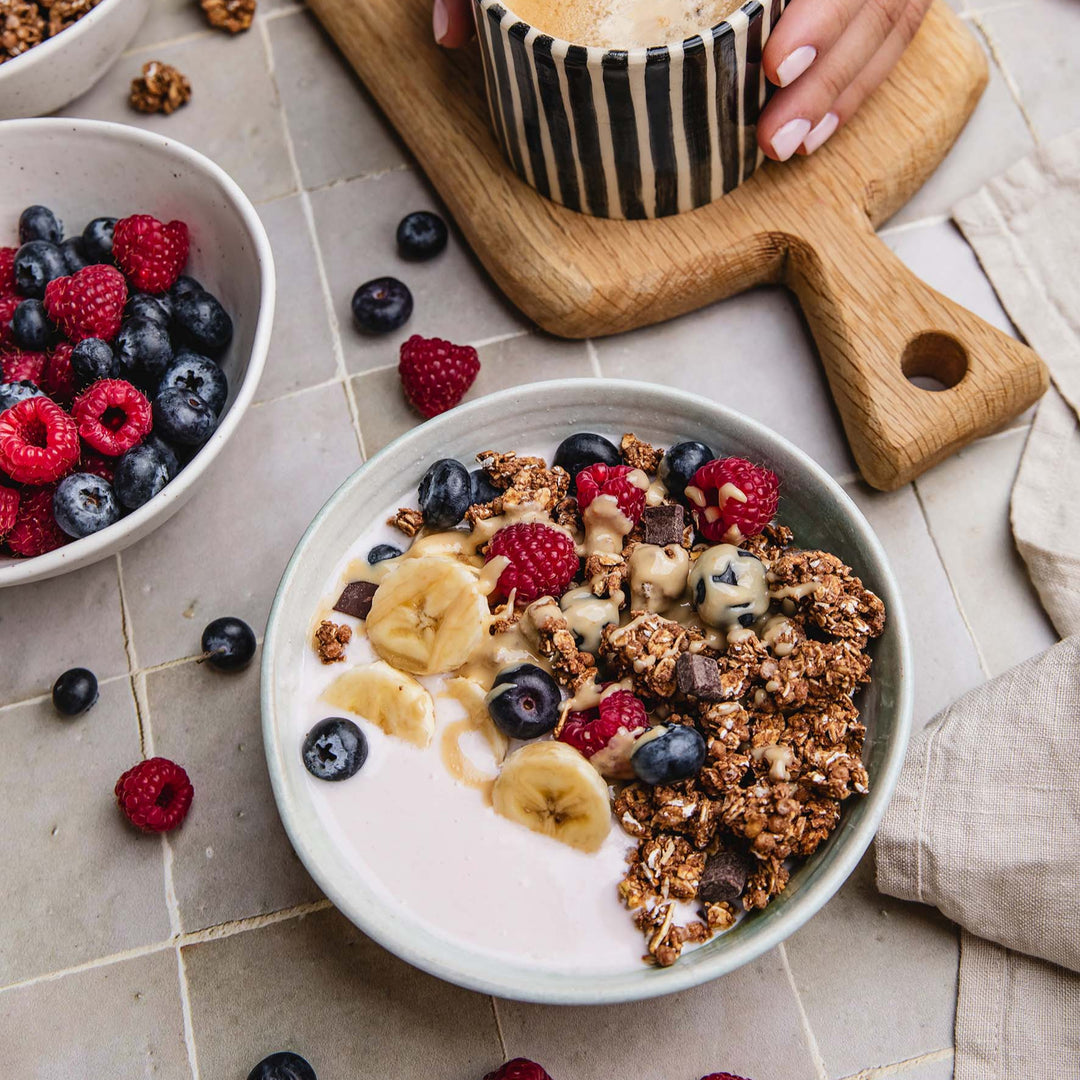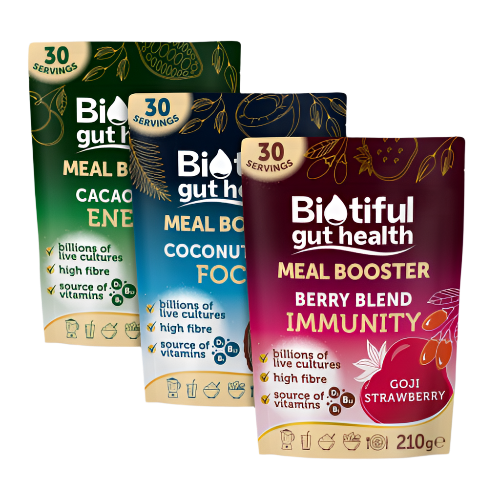Improving your Gut Health

How are diet and gut health linked?
What you eat isn’t just for you. It’s also food for the trillions of bacteria in your gut, and these microbes play an important role in digesting food and supporting a strong immune system.
What foods can affect your gut health?
Fibre is great food for our gut microbes, and helps these bacteria thrive. Fruits, vegetables, legumes and whole grains are all delicious sources of fibre, and both soluble and insoluble fibre support these microbes and our overall health.
Then there are naturally fermented foods which contain live bacteria. Fermented foods made with live cultures, such as Kefir, kimchi and sauerkraut, can give your body a dose of live microorganisms crucial to healthy digestion.
These bacteria are thought to help a multitude of health issues, specifically digestive health*.
On the other hand, antibiotics, which are important medicine for treating infections and diseases caused by bacteria, work indiscriminately and can affect the diversity and composition of the gut bacteria for as long as two years. When we need to take antibiotics, it could be worthwhile considering these other dietary options for supporting our gut bacteria, and it’s always worth asking your GP for advice about what’s best for you.
Gut specialist Professor Tim Spector was on This Morning in 2019 discussing five things that aren’t great for your gut, and five things that are – and fermented foods, such as Biotiful Kefir, made the list. Catch up on the segment here: The truth behind good health? You’ve ‘gut’ to start on the inside!
Adapting your diet to support your gut
Immunologist, Dr Macciochi says:
“Traditional fermented foods are a great example. These are foods that naturally contain probiotic ‘live and active’ good bugs. Fermentation describes the process by which these live beneficial bugs ‘pre-digest’ food. This allows your food to be used effectively by your body and you also get the benefit of enriching your own GM by consuming ‘live’ probiotic bugs, each with their own array of health promoting compounds.
Studies show that probiotic foods work best when eaten regularly. Most studies show that for these probiotic good bugs to exert their health benefits, they should be taken regularly.
Our food choices can also support our gut bugs. Consider your diet to be a fertiliser for your inner ecosystem. Eating a diet rich in a diverse range of plant-based whole-foods like fruits, vegetables, beans and pulses as well as avoiding processed foods is key to supporting healthy GM. Aim to get as many different plant-based foods into your diet each week. And remember variety is key. A higher number of different plant foods typically encourages more diversity in your gut bug community – each with different skills to support your immune system.
It’s not just what we eat that impacts our gut health – stress, lack of sleep, illness, and overuse of medications, including antibiotics, can damage our gut bacteria. By making small changes to both diet and lifestyle we can maintain a healthy balance of good bacteria and a highly efficient immune system.”
* Kefir is also source of calcium, which contributes to the normal functioning of the digestive enzymes.
Share this article:















